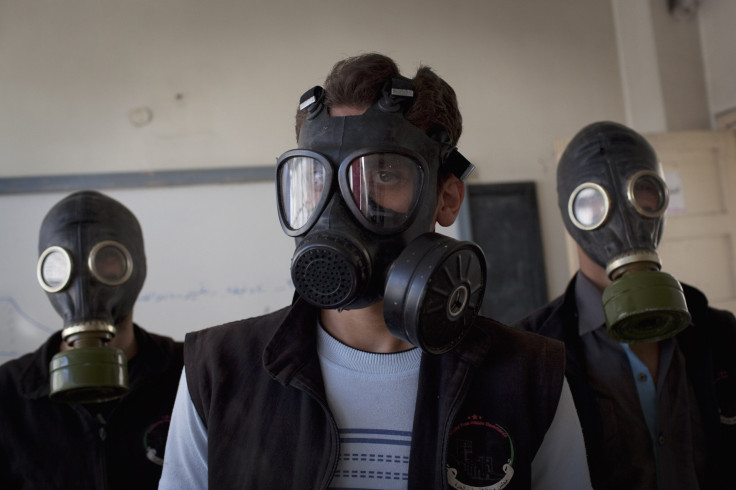Chemical Weapons In Syria: Global Watchdog Looks To Prevent Attacks From Terror Groups

As 92 percent of the chemical weapons stockpile in the world has been destroyed, an international watchdog has focused on preventing the use of such weapons by terror groups, particularly in Iraq and Syria, the Associated Press reported Sunday. The Organization for the Prohibition of Chemical Weapons is set to begin its annual conference Monday by focusing on the threat coming from terror groups instead of risks from hostile nations.
"We want to capture the current security threats in regard to chemical weapons, especially from nonstate actors," the group's director-general, Ahmet Uzumcu, told the AP.
Several instances of the use of chemical weapons have been documented in Syria, where a civil war has entered its fifth year. Syrian President Bashar Assad has reportedly used chemical weapons on his own people in multiple attacks throughout the war. While authorities have had difficulty confirming these attacks, photos and footage of injuries sustained in such assaults are consistent with the symptoms of chemical weapons use.
Watchdog looks to counter new chemical weapons threats (from @AP) https://t.co/niDU2rcdoD
— Noel Gibney (@Watersun555) May 1, 2016
One of the few confirmed cases of chemical weapons use took place in August 2015 and was confirmed in late October by the Organization for the Prohibition of Chemical Weapons in a report shared exclusively with Reuters. Mustard gas was used during an exchange between rebel forces and the terror organization known as the Islamic State group, or ISIS, though the report did not say which side had used the weapons.
ISIS has overtaken vast territory in Iraq and Syria in the past several years, looking to overthrow Assad and impose a strict interpretation of Islamic law. The group has been known to use torture, rape and other methods condemned by the Geneva Convention to achieve their goals, and experts are particularly concerned about the prospect of chemical weapons falling into the hands of ISIS militants.
The Syrian government claims it has destroyed its stockpile of chemical weapons. If some remain, however, ISIS could steal them and use them in attacks. A more likely possibility is that the group could make certain kinds of chemical weapons, such as chlorine gas, using household materials.
The U.S. captured the head of the unit believed to be developing chemical weapons for ISIS in a raid in February. Several hundred were wounded, and a 3-year-old girl was killed in what appeared to be a chemical attack in March, apparently carried out by ISIS.
© Copyright IBTimes 2025. All rights reserved.






















